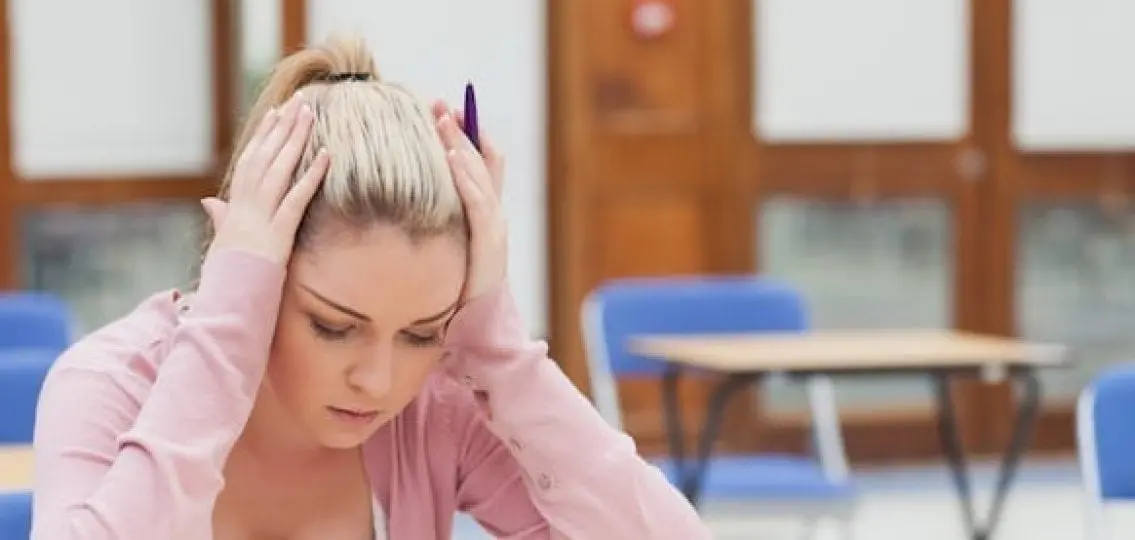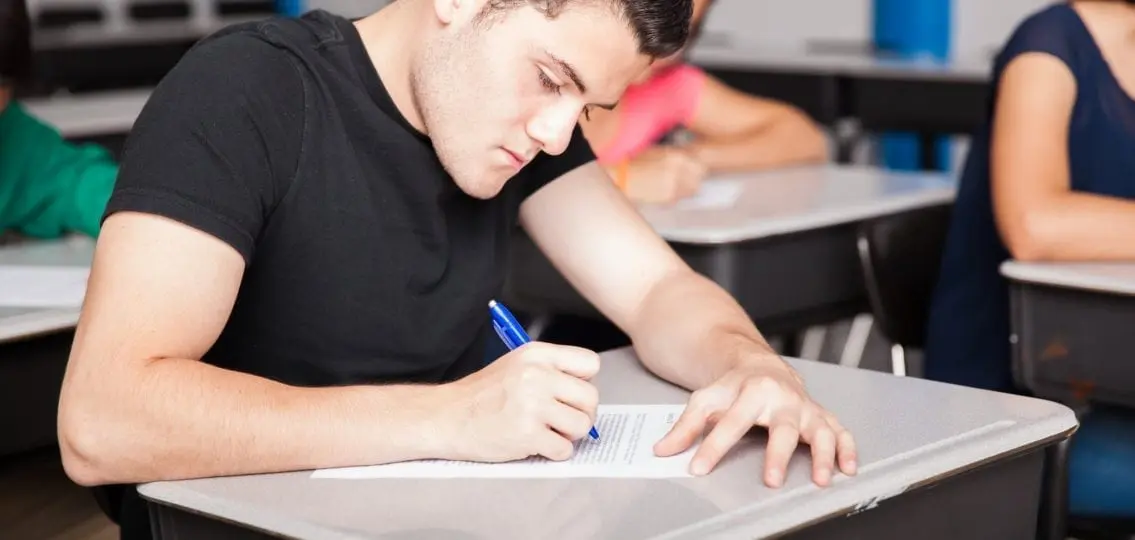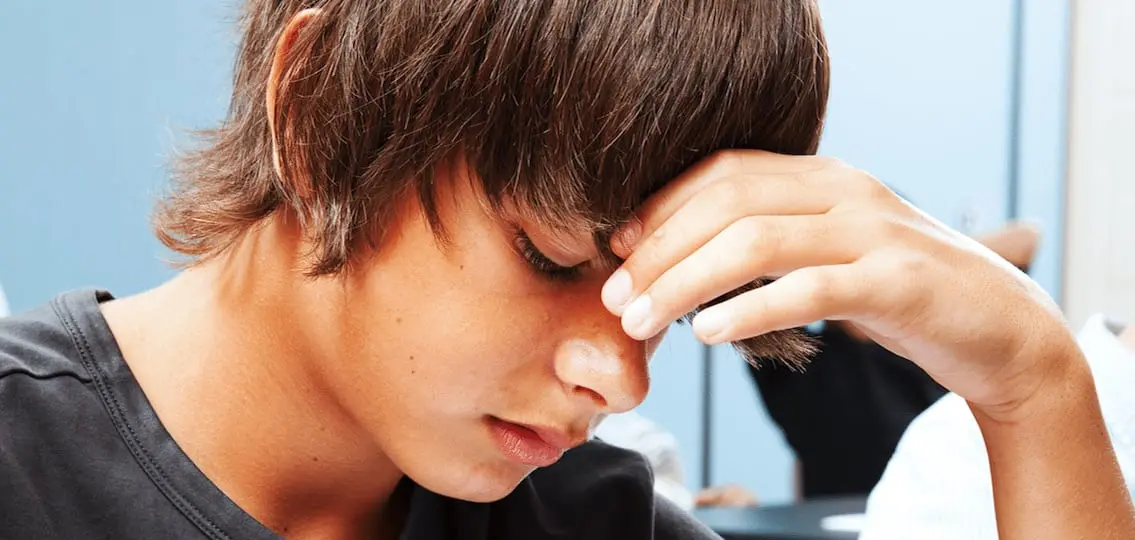“I’m anxious/worried/overwhelmed with [boyfriend/girlfriend/friend group/class/test]!”
Every parent of a teen has heard this at one point or another.

Mindfulness Exercises for Test Anxiety
As a high school educator, I hear this daily. Overwhelmed with stress, many teens do not seem to have any mechanisms to cope. Aside from the enormity of state test pressure and rigorous college admissions, teens are also constantly inundated with social media. The pressures that impact modern teenagers were not around for their parents—or for most educators.
However, there are ways to help teens manage stress. And the good news: these strategies can be used throughout the rest of their lives.
Let’s look at test anxiety, which is a growing problem for students. In Ohio, there are now three major standardized tests that are year-end grade promotion requirements. While teachers do their best to prepare their students, the pressure on everyone involved is out of control. It starts in elementary school and is well-cemented by high school causing great anxiety across the board.
I have found that a few mindfulness strategies can ease student, teacher, and parent stress—because when a teen is stressed, so are you.
What Is Mindfulness?
Mindfulness is the practice of being aware of one’s own body and feelings in the present moment. When students can recognize their stress and stop to breathe, it allows them to refocus on the task at hand. It’s like a stress ball for their brains.
The response to anxiety of any kind is the same as the fear response to danger: student’s blood pressure and heart rate increases and their breathing quickens. If one is in a state of fight or flight, how can he concentrate on a test or other problem?
A simple mindful breathing exercise brings the student back to the present moment to focus. But with all the noise and distractions teens face at school, how can they use mindfulness?
It’s easier than you think. Before a test, suggest to your student to sit with feet flat on the floor, shoulders rolled back, and chest lifted. Breathe in through the nose and out through the mouth slowly. Focus only on the breath. Do this for as long as needed, but even just one minute reduces blood pressure, lowers the heart rate, and slows breathing. Students can then come back to the test with a calm and open mind.
Coping With Stress
Teens also can use these strategies in their relationships with peers, significant others, and family members—and parents may find these strategies useful when negotiating with their child. When students can use these mindfulness strategies in their everyday lives, they are more calm, relaxed, and prepared to learn at school and cope with problems that come their way.
The teen years are tumultuous as they navigate various relationships and the drama that arises. While the age of technology has increased our “connections,” the ability to work things out face to face or walk away and take a breather from a situation, is almost non-existent. When we’re always connected, we lose the ability to connect to the most important person: ourselves.
Technology has been part of our teen’s lives since birth, and it can create a disconnect between parent and child. As adults, we must refrain from a comparison between “us” and “them.” Instead, mindfulness can make teens—and parents, educators, and administrators—more aware of how we feel. When we understand our feelings, we can focus better and are more likely to handle challenges calmly and rationally.
While mindfulness can be started during the toddler years, it is never too late to begin using the practice. Mindfulness is used to helped chronic pain sufferers, bullied kids, cancer patients, prisoners, powerful CEOs, and now teens in the classroom. The strategies are not new–mindfulness has been around for thousands of years–but the impact of their applications continues today.

As an educator and a parent, I find mindfulness invaluable as I’ve seen the positive impact first-hand for my students, my children, and myself.




